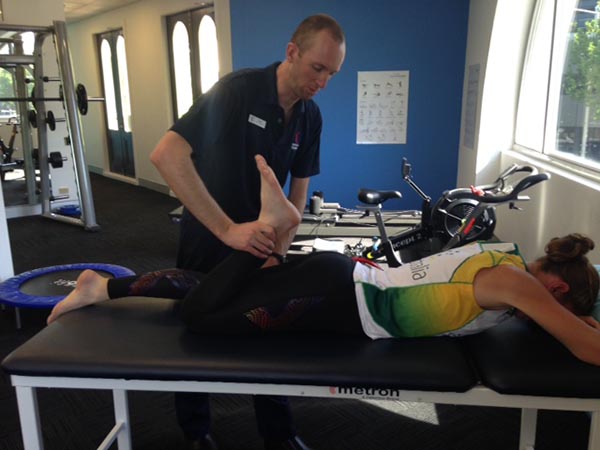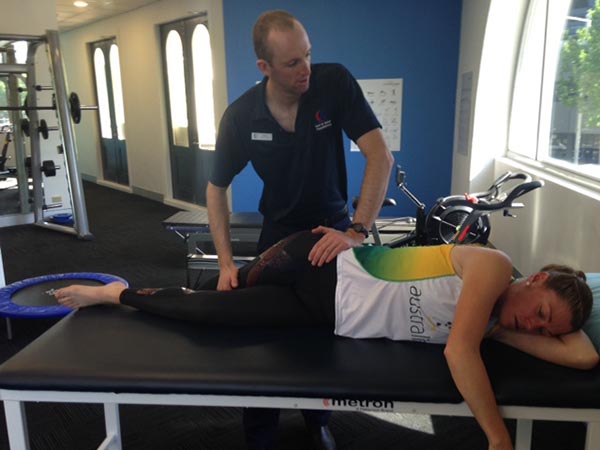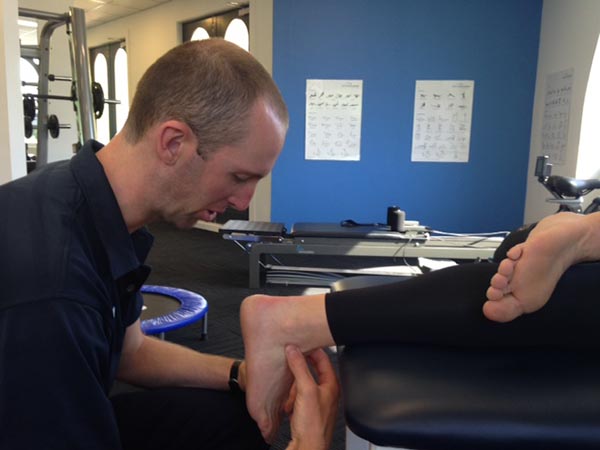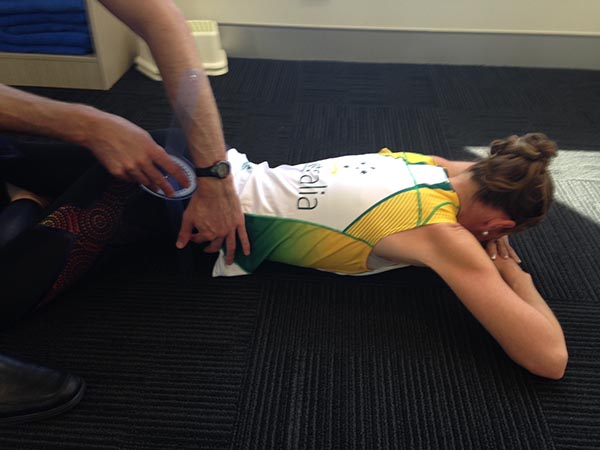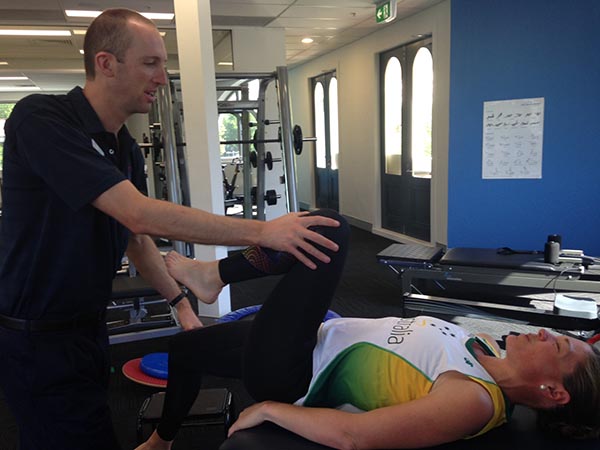Running Assessment with Australian Ultra-Marathon Runner – Kelly-Ann Varey
 We introduced you to one of our clients, Kelly-Ann Varey, in April. After winning the 2015 Canberra Women’s 50km Ultra-Marathon, Kelly is soon to compete at the 2015 World 50 Km Championships in Doha, Qatar in December. It’s a fantastic achievement for this 36yr old wife and mother of two, who only began running just a few years ago. Just before heading off to Doha, Kelly dropped in for our complete Running Assessment with Simon.
We introduced you to one of our clients, Kelly-Ann Varey, in April. After winning the 2015 Canberra Women’s 50km Ultra-Marathon, Kelly is soon to compete at the 2015 World 50 Km Championships in Doha, Qatar in December. It’s a fantastic achievement for this 36yr old wife and mother of two, who only began running just a few years ago. Just before heading off to Doha, Kelly dropped in for our complete Running Assessment with Simon.
Check out my interview with Kelly
Our experienced physios and podiatrists run for sport themselves and have performed many running assessments for elite and recreational runners from Canberra. We cover the following areas in our Running Assessment:
- Shoes and Orthotics:A ny foot dysfunction that leads to poor running technique and possible injury can be corrected with appropriate running shoes recommended by our podiatrist, and with our custom-made orthotics.
- Biomechanical Issues: We thoroughly assess your static and dynamic running biomechanics
- Videography: We video you before and after your assessment to fully assess your running technique. This helps us ensure we have improved your running position and your running form.
- Running drills: We will improve your running action by showing you proper technique along with some running drills.
- Report: We will provide a report to you in an easy to understand format outlining your static and dynamic biomechanical assessment findings; the correction strategies (including any prescriptive exercises) for any identified biomechanical problems; training program recommendations; running form problems; and any recommended running drills.
Here’s a peek at Kelly’s Running Assessment.
Are you thinking about running your first 10km, City to Surf, Half-Marathon or Full Marathon? A Running Assessment with us can help you avoid injuries as well as run more efficiently. Here’s some extra reading on avoiding injuries that we found interesting.
Here’s some other great running articles;
Or from around the web;
Tom Tellez, coach of 9 Olympic gold medal winner Carl Lewis, says it takes 500 hours of drill work to learn how to run properly. We all taking running for granted because we can all do it, but running is a skill, just like learning any sport. This is why not always the fittest runner wins but rather the runner that is more efficient. The better the technique, the less risk of injury. So take a proactive approach to training and have a running assessment to get you to run faster and stay off our treatment tables.
“You cannot improve if you cannot run. The single greatest cause of improvement is remaining injury free”
Jeff Galloway (past Olympian and author of Galloway’s Book of Running)
